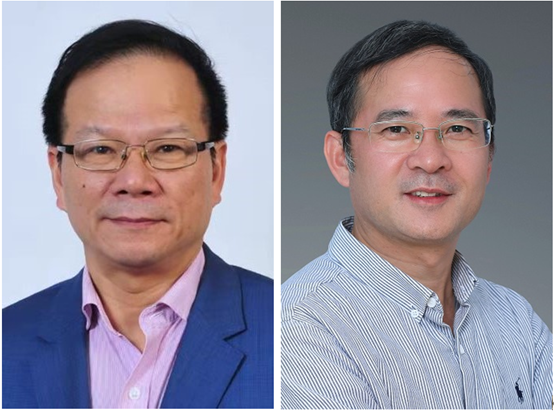XMU Professor Lin Shengcai of the Department of Biochemistry and the Department of Cell Biology and Professor Xie Suyuan of the Department of Chemistry are named fellows of the Chinese Academy of Sciences on November 18th, according to the Announcement of the Elected Academicians of CAS in 2021.
Professor Lin Shengcai, apart from serving as a supervisor of doctoral students in Xiamen University, is a recipient of the National Science Fund for Distinguished Young Scholars and a chief scientist of the National Basic Research Program of China (973 Program). In addition, he was engaged as a distinguished professor of the Changjiang Scholars Program in 2001 and was a winner of the National Project for Hundreds and Thousands of Talents.
He has been active in research on molecular mechanisms, principles, and biological functions of metabolic homeostasis regulation. The systematic results achieved by his research team have provided a new theory and new strategies for understanding the causes of diseases related to glucose and lipid metabolism and the development of relevant medicine. So far, he has published over 110 research papers, which have been cited over 10,000 times. His findings rank among 2012 Top 10 Scientific Progress of China and 2017 China’s Top 10 Progress in Life Sciences. He also received a series of awards in Biochemistry, Medicine and Cell Biology.
Professor Xie Suyuan, an XMU professor and a supervisor of doctoral students, is also a recipient of the National Science Fund for Distinguished Young Scholars, a distinguished professor of the Changjiang Scholars Program (elected in 2008), a winner of the National Project for Hundreds and Thousands of Talents, and a chief scientist of 973 Program.
Professor Xie Suyuan, with his research team, has been dedicated to research on carbon clusters in chemistry. They discovered the principles of “tension release” and “local aromatization” to stabilize novel forms of fullerene-based materials and thus broke through the restriction of “isolated-pentagon rule”, increasing the quantity and variety of carbon clusters. They also invented multistage combustion synthesis and pushed forward the demonstration and application of fullerenes and their derivatives as electron acceptor materials and health and fashion product additives. He has published over 150 research papers, including over 30 papers on journals such as Science, Science Advances, Nature Chemistry and Nature Materials. He also compiled Fullerene: From Basics to Application and contributed a chapter on fullerene to Modern Inorganic Synthetic Chemistry. In 2006 and 2015, he won the second prize of the National Natural Science Award (as the third and first accomplisher, respectively). In addition, he received the titles of “National Excellent Scientist” in 2015 and “Chinese Chemical Society Membership” in 2020.


